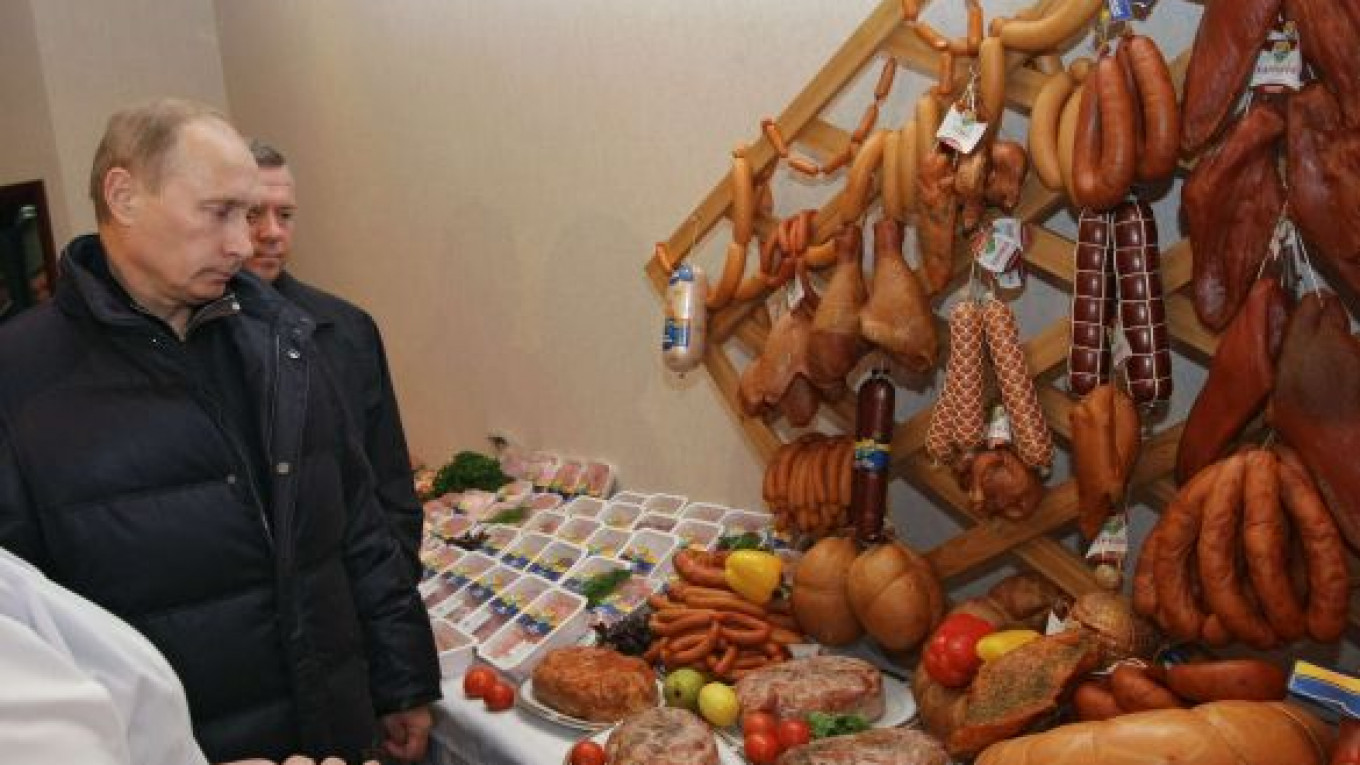Russia, once the world's third-biggest wheat exporter, has extended a ban on overseas sales of grain until July 1 to ensure domestic supply after drought damaged crops, Prime Minister Vladimir Putin said Friday.
More than one-third of the country's grain crop was ruined by the worst drought in at least a half-century, prompting the government to impose a grain-export ban Aug. 15. It was originally scheduled to be reviewed Dec. 31.
"The stability of our internal food market and the feed for livestock must be the priority," Putin said during a government meeting in Rostov-on-Don, which was broadcast on state television. He signed the extension Thursday, he said.
Wheat prices in Chicago have soared since June as Russia's drought, flooding in Canada and parched fields in Kazakhstan and Europe decimated crops. Ukraine, once the world's biggest barley exporter, introduced export quotas this month after a smaller-than-expected harvest.
Russian farmers reaped about 60 million tons of grain this year, and the country has enough supply to meet domestic demand, Putin said. Winter grain plantings totaled about 13.2 million hectares as of Oct. 20, almost 4 million hectares less than a year earlier, the prime minister said.
Winter grain plantings are almost 30 percent below forecasts, and "this lag will be impossible to overcome," First Deputy Prime Minister Viktor Zubkov said at Friday's meeting.
Zubkov also warned regional leaders not to ban grain from leaving their regions, saying the government would investigate each such case individually.
"In certain regions, there have been bans on removing wheat under the pretext of phytosanitary requirements. In fact, these are attempts to hold back the grain — 'just in case,'" Zubkov said, according to comments posted on the government web site. "That shouldn't happen. Regional leaders need to sort this matter out, and the government will deal with each individual case."
The first deputy prime minister also urged Russian Railways to pay close attention to grain companies' requests for shipments within the country.
Russian wheat exports are forecast to slump to 3.5 million tons in the 12 months ending in June 2011, compared with 18.56 million tons a year earlier, according to the U.S. Department of Agriculture.
Wheat futures rebounded from a two-week low after the announcement.
Prolonging the shipment ban is "a little psychologically supportive" to prices, said Shawn McCambridge, senior grain analyst for Prudential Bache Commodities. "Most people are not expecting Russia even to consider coming back in until after next year's harvest," he said.
Wheat futures for December delivery climbed 2 cents, or 0.3 percent, to settle at $6.71 a bushel early Friday afternoon on the Chicago Board of Trade. Futures still dropped 4.8 percent for the week, the second straight weekly decline.
The grain is up 40 percent since the end of June because of the Russian drought.
(Bloomberg, MT)
A Message from The Moscow Times:
Dear readers,
We are facing unprecedented challenges. Russia's Prosecutor General's Office has designated The Moscow Times as an "undesirable" organization, criminalizing our work and putting our staff at risk of prosecution. This follows our earlier unjust labeling as a "foreign agent."
These actions are direct attempts to silence independent journalism in Russia. The authorities claim our work "discredits the decisions of the Russian leadership." We see things differently: we strive to provide accurate, unbiased reporting on Russia.
We, the journalists of The Moscow Times, refuse to be silenced. But to continue our work, we need your help.
Your support, no matter how small, makes a world of difference. If you can, please support us monthly starting from just $2. It's quick to set up, and every contribution makes a significant impact.
By supporting The Moscow Times, you're defending open, independent journalism in the face of repression. Thank you for standing with us.
Remind me later.






